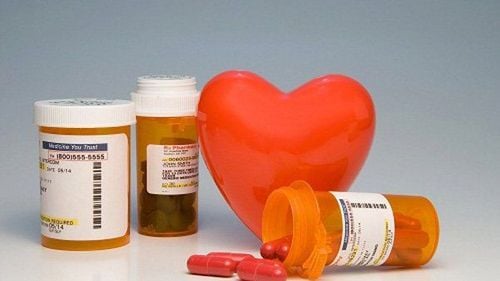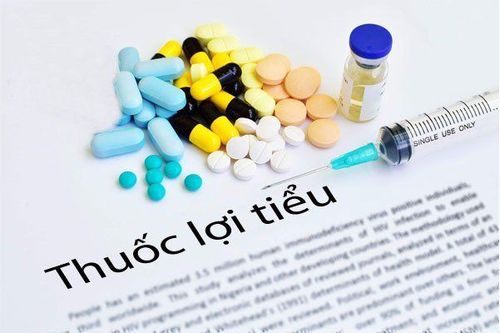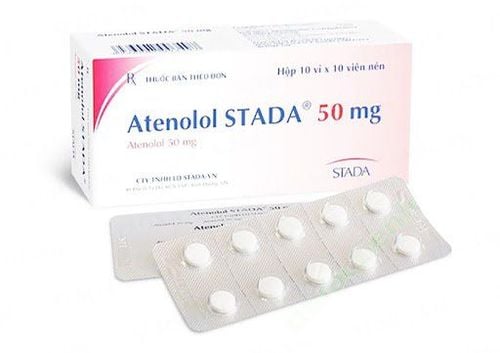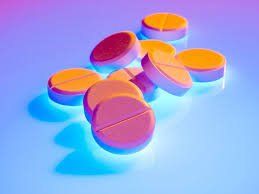This is an automatically translated article.
There are many classes of drugs used in the treatment of hypertension with different mechanisms. One of these are vasodilators that relax the walls of arteries and/or veins, thereby lowering blood pressure.
1. By what mechanism do vasodilators work?
The pharmacological mechanism of antihypertensive drugs is quite complex. Each class of drugs has a distinct mechanism of action. A class of vasodilators used to treat high blood pressure that relaxes the walls of arteries and/or veins, preventing blood vessel constriction. Thereby, reducing pressure on the walls of blood vessels, helping blood flow easily and reducing blood pressure.
2. Vasodilator drugs in the treatment of hypertension
The group of vasodilators in the treatment of hypertension includes:
ACE inhibitors (Captopril, Lisinopril, Enalapril...): These drugs will prevent the creation of angiotensin II (a hormone that causes contractions). blood vessels), vasodilation, lowering blood pressure. This group often causes undesirable side effects such as dry cough, low blood pressure (especially in people taking diuretics or eating less salt), angioedema, increased potassium . Angiotensin II receptor antagonists (Losartan, Valsartan...): The drugs in this group will prevent the hormone angiotensin II from binding to the receptor and thereby cause vasodilation, lowering blood pressure. The drug causes the same side effects as the ACE inhibitors mentioned above. Nitrates group (Glyceryl trinitrate, Isosorbid mononitrate, Isosorbid dinitrate...): This group works to dilate both arteries and veins, thereby leading to lower blood pressure. It can be used to treat angina , high blood pressure or acute heart failure . Side effects when taking the drug include low blood pressure, tachycardia, facial flushing, headache. Group of calcium channel blockers (Amlodipine, Felodipine...): The drug can be used in the treatment of hypertension, myocardial ischemia. Common side effects include headache, flushing, dizziness, ankle edema, nervousness, and constipation. Hydralazine: A vasodilator that directly lowers blood pressure. Common side effects when taking the drug include headache, facial flushing, tachycardia, nausea, loss of appetite, and palpitations. Minoxidil: A drug that directly dilates the arteries. The drug can cause side effects such as weight gain, hirsutism, salt and water retention, tachycardia.
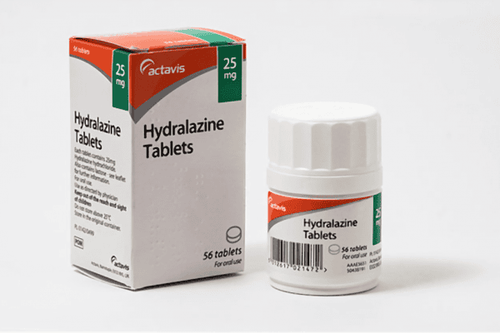
Hydralazin là loại thuốc giãn mạch trực tiếp gây hạ huyết áp
3. Notes when using vasodilators in the treatment of hypertension
Vasodilators can cause side effects such as flushing, dizziness, nausea, palpitations, tachycardia, edema... If the above side effects occur frequently and affect the quality of the drug. quality of life, you should contact your doctor for advice and change medication if necessary
Do not use vasodilators for people with low blood pressure or severe anemia, pregnant women and lactation...
Do not use nitrate group with PDE-5 enzyme inhibitors (sildenafil, tadalafil, vardenafil...) at the same time because it can cause dangerous complications.
Most of the vasodilators require prescription, patients must not self-administer, must be prescribed and closely monitored by specialists.
Hypertension is a fairly common disease today and can lead to many dangerous complications such as heart failure, kidney failure, myocardial infarction,... Patients need to adhere to taking antihypertensive drugs. Follow your doctor's instructions to control the disease and prevent complications.
Please dial HOTLINE for more information or register for an appointment HERE. Download MyVinmec app to make appointments faster and to manage your bookings easily.





